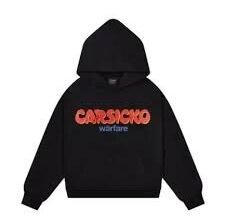Best Offers Roof Leakage Waterproofing Solutions
Protect your property from water damage with our specialized roof leakage waterproofing solutions. Ensure a secure and dry living environment.

Roof Leakage Waterproofing Solutions
Roof leakage can be a homeowner’s nightmare, causing damage to property and posing health risks due to mold growth. This article will explore effective Roof Leakage Waterproofing Solutions to combat roof leakage and protect your home.
Introduction to Roof Leakage Issues
Roof leakage is a common problem faced by homeowners worldwide. It can result from various factors, including weather conditions, poor maintenance, and structural issues. Addressing roof leakage promptly is crucial to prevent further damage to the building structure and belongings.
Common Causes of Roof Leakage
Damaged Shingles
Damaged or missing shingles can expose the underlying roof structure to water infiltration, leading to leaks during heavy rainfall or snowmelt.
Clogged Gutters
Clogged gutters prevent proper rainwater drainage, causing water to accumulate on the roof and seep into the building through gaps and cracks.
Flashing Issues
Improperly installed or damaged flashing around roof penetrations, such as chimneys and vents, can allow water to enter the building interior.
Poor Installation
Inadequate roof installation techniques, including improper sealing and fastening of materials, can result in leaks over time.
Importance of Waterproofing Solutions
Waterproofing solutions are vital in safeguarding roofs against leakage and water damage. By applying effective waterproofing methods, homeowners can prolong the lifespan of their roofs and maintain a dry and comfortable indoor environment.
Different Types of Roof Waterproofing Solutions
Liquid Waterproofing Membrane
Liquid waterproofing membranes are easy to apply, forming a seamless barrier against water infiltration. They are suitable for various roof substrates and can withstand extreme weather conditions.
Bituminous Membrane
Bituminous membranes are asphalt or coal tar impregnated with fiberglass or polyester reinforcement. They provide excellent waterproofing properties and can adapt to different roof shapes and sizes.
Thermoplastic Membrane
Thermoplastic membranes, such as PVC and TPO, offer superior durability and resistance to UV radiation. They are highly flexible and can accommodate structural movements without compromising waterproofing performance.
Cementitious Waterproofing
Cementitious waterproofing compounds are composed of cement, sand, and proprietary additives. When applied to concrete or masonry surfaces, they form a rigid barrier, effectively sealing out moisture.
Polyurethane Liquid Membrane
Polyurethane liquid membranes provide outstanding elongation and crack-bridging capabilities. They are ideal for complex roof geometries and offer long-term protection against water intrusion.
Pros and Cons of Each Waterproofing Solution
Each type of waterproofing solution has its advantages and limitations. While liquid waterproofing membranes offer easy application, they may require frequent maintenance to ensure continued performance. Bituminous membranes provide robust waterproofing but can be challenging to install in cold weather conditions.
Thermoplastic membranes offer excellent durability but come at a higher initial cost than other options. Cementitious waterproofing compounds are cost-effective but may require multiple coats for optimal waterproofing. Polyurethane liquid membranes offer superior flexibility but may be susceptible to UV degradation over time.
Cost Considerations for Waterproofing Solutions
The cost of waterproofing solutions varies depending on factors such as the type of membrane, roof size, and labor expenses. Homeowners should consider the long-term benefits of investing in high-quality waterproofing materials versus short-term cost savings.
DIY vs. Professional Waterproofing
While some homeowners may opt for DIY waterproofing solutions to save money, professional installation ensures proper application and adherence to industry standards. Hiring experienced contractors can also provide peace of mind and warranty coverage for the work performed.
Steps to Prevent Roof Leakage
Regular Roof Inspections
Schedule regular roof inspections to identify and address potential issues before they escalate into costly repairs.
Prompt Repair of Damaged Areas
Repair damaged shingles, flashing, and sealants promptly to prevent water infiltration and minimize the risk of roof leakage.
Proper Drainage Maintenance
Keep gutters and downspouts clear of debris to ensure proper water drainage away from the roof and foundation.
Application of Waterproof Coatings
Apply waterproof coatings to vulnerable roof areas, such as seams and joints, to enhance protection against water penetration.
Conclusion
Roof leakage can compromise the integrity of your home and result in significant repair expenses if left unchecked. By understanding the common causes of roof leakage and investing in effective waterproofing solutions, homeowners can safeguard their properties against Pest Control Services In Lahore water damage and enjoy lasting peace of mind.
FAQs
- How often should I inspect my roof for potential leaks?
- Inspecting your roof at least twice a year, preferably in the spring and fall and after severe weather events, is recommended.
- Can I apply waterproofing solutions myself, or should I hire a professional?
- While DIY application is possible for some waterproofing products, hiring a professional ensures proper installation and adherence to manufacturer guidelines.
- What are the signs of roof leakage that I should watch out for?
- Signs of roof leakage include water stains on ceilings or walls, peeling paint, mold growth, and musty odors in the attic or interior spaces.
- Are there any eco-friendly waterproofing options available?
- Several eco-friendly waterproofing solutions are available, including water-based membranes and recycled materials.
- How long do waterproofing solutions typically last?
- The lifespan of waterproofing solutions varies depending on factors such as product quality, application method, and environmental conditions. However, most products offer warranties ranging from 5 to 20 years.



